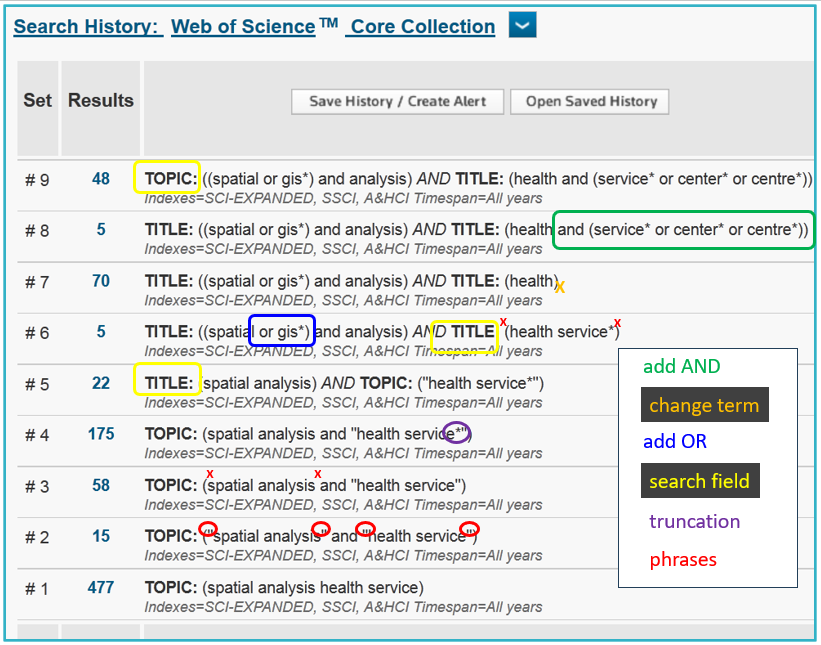Refining the query
You can start the information search by doing some preparatory queries. Hence you can try your search concepts, how common or rare they are within the database. You can collect some alternative terms from the results or you can just get a feel to the topic.

On the grounds of the first queries you can deduce what to do next in order to get better results. The means to refine the search query are as follows:
- number of concepts (that is: number of AND-operations)
- search terms describing the concepts
- fields to be searched
- in/excluding truncation
- in/excluding phrases
If you get too much and/or irrelevant results:
- add a defining concept using the AND-operator
- if the search term appears to be too general, try to find more specific term
- use the title and/or subject fields only
- use a phrase instead of an AND-operation
If you get too few results:
- check possible typing errors
- remove the least significant concept
- figure out alternative and broader terms to you search concepts and add them with OR-operator
- look for all fields within the record
- split the phrase to an AND-operation
- use truncation
Example of a search modification:

The definition of a “good” or “comprehensive” or “proper number of” results is depending on the purpose of the search.
When you need a limited number of truly relevant results, you make a very focused query and try to cut down the number of irrelevant publications.
When you like to have an extensive result containing “everything” on the topic, you’ll make a query containing all the possible alternative terms of a certain concept and all the possible combinations for them. A systematic literature review needs this kind of extensive search. The number of results can be rather large and you’ll need to read and look through the results in order to select the actually valuable publications.
To Do:
- After performing a query, assess the results
- Try different means to re-write the query, either for more results or for more relevant results
Next page: Start from UEF Primo